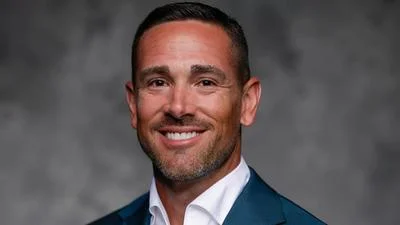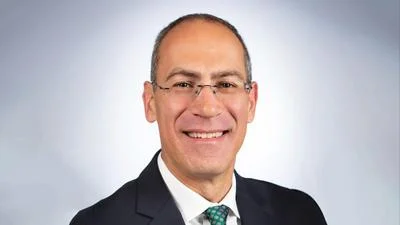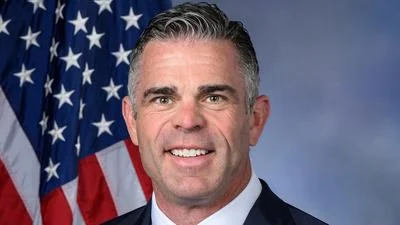"The present inflation is the result of both supply and demand side factors," Thomas Nesslein says. | Anna Tarazevich/Pexels
"The present inflation is the result of both supply and demand side factors," Thomas Nesslein says. | Anna Tarazevich/Pexels
Inflation and wages are increasing at different paces and impacting Americans and Green Bay residents in varying degrees, according to Thomas Nesslein, Ph.D., associate professor at the University of Wisconsin-Green Bay Cofrin School of Business.
According to the U.S Bureau of Labor Statistics, nominal compensation for all U.S. civilians has risen 2.8% annually. At the same time, because of inflated prices, real compensation is down by 2% since before the COVID-19 crisis. Prices rose faster than wages, leading to inflation-adjusted compensation falling for the past three months below its December 2019 level.
By definition, inflation is a general raise in prices, but Nesslein said that not all prices rise at the same rate. He explained that the Green Bay workforce will suffer a loss in purchasing power "if their wage gains are less than the inflation rate that they are facing."
"This is what the situation is nationally," he told Green Bay Reporter. "Annual wage growth for the 25% lowest paid workers was running at 4.8% in the past year but consumer prices overall have increased some 5.3% in August from a year earlier. So, the lowest paid workers clearly have had a decrease of some 0.5% in purchasing power since August 2020."
Brown County wages failed to keep pace with the national average, rising 6.8% compared to 7.4% nationally in the third quarter 2019-2020. Wisconsin ranked 43rd of 50 states in this metric and 34th by level.
Jason Furman, former Obama Chairman of the Council of Economic Advisers, and current Harvard economist, says inflation has eaten up all of the wage gains for Americans going back to the Trump administration. In June 2021, real compensation fell 0.7% below December 2019 levels and 2% lower than its pre-pandemic trend.
Mark Vitner, a senior economist for Wells Fargo’s Corporate and Investment Bank, said current inflation trends won’t come close to historical periods of inflation.
“Most of the run up in inflation that we are seeing is due to some temporary supply shortages and bottlenecks in the supply process because one or two key parts are [missing], such as semi-conductor chips,” Vitner said.
According to Nesslein, while Green Bay's inflation rates are not starkly different from the national average, inflation is likely less harmful to the local workforce than it is to, for example, working class citizens on the West Coast.
Regardless, the lag in cost-of-living compensation increases and surge of key goods and services prices is painful in Green Bay. Workers most likely to be hurt by the inflation spike are those in the bottom 25% of income distribution.
"[They] tend to spend a large share of their income on necessities such as food, rent and gasoline, since the prices of these items have risen much faster than consumer prices in general," Nesslein said.
The Bureau of Labor Statistics’ Consumer Price Index (CPI) reported notable upticks over the past 12 months on items particularly important to average American households: food (3.4%), energy (23.8%), and used vehicles (41.7%).
The Bureau of Labor Statistics reported that annual headline inflation in July again hit 5.4%. The gauge for used cars shows prices leveled off, suggesting that the inflation scare may prove transitory.
The Hill's Kristin Tate said in May of this year that two significant drivers are largely responsible for the current inflation: “Money printing by the Federal Reserve” and “massive government spending.” Tate calls the growing inflation “Biden’s hidden tax on working Americans.”
Authors of the initial $1 trillion infrastructure bill, including majority leader Chuck Schumer, said the bill would be "fully paid for." The nonpartisan Congressional Budget Office (CBO) has since projected said that the $1 trillion installment of the infrastructure plan would add $256 billion to the federal deficit over 10 years, after it increased nearly $8 trillion under former President Trump.
Nesslein said that, while the federal government could put more effort in to slow spending in the economy, Congress' power to impact supply and demand in many sectors is limited.
"The private economy will be key here," he said, noting that aggregate demand far surpasses supply in several economic sectors. "The present inflation is the result of both supply and demand side factors. In the last two years, Congress and [the federal government] have greatly stimulated total demand in the economy which tends to put upward pressure on prices.
"Both due to the pandemic and various bottlenecks in both the domestic economy and the global supply chains, there are shortage of key goods and inputs into production such as a major shortage of semiconductors. These factors also raise prices."






 Alerts Sign-up
Alerts Sign-up